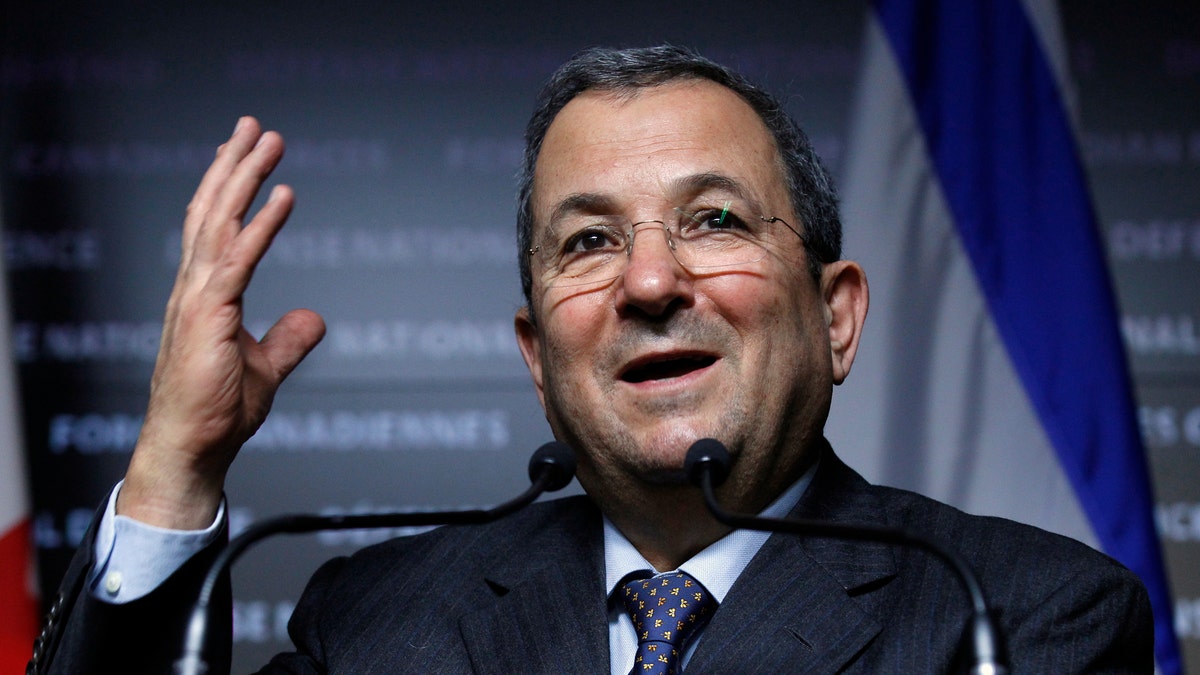
File photo - Israel's then Defence Minister Ehud Barak takes part in a news conference in Ottawa Nov. 16, 2011. (REUTERS/Blair Gable)
Former Israeli Prime Minister Ehud Barak is confident that the close bonds between Israel and the U.S. will continue regardless of who wins November’s presidential election.
“The relationship is so strong between Israel and the United States of America that whoever is elected, she or he will reflect the real shared values and the great tradition of co-operation between Israel, the only democracy in the Middle East and America, the strongest and most important democracy on Earth,” he told FoxNews.com Monday.
Barak thinks that the U.S. will remain a strong ally of Israel regardless of who is in the White House next year. “I happen to know Hillary and the Clintons for decades – she knows Israel very well and very intimately – she knows the players, she knows everyone,” he said.
“Donald Trump is just learning it, but he basically knows [Israel], he knows many Israelis,” added Barak, noting that Trump, like Clinton, has Jewish family members. “As far as Israel is in focus, the great tradition of close relationship will continue.”
Related:
Barak, who was Israel’s Prime Minister between 1999 and 2001, has also served as the country’s Minister of Defense and Minister of Foreign Affairs, as well as Commander-in-Chief of Israel’s Defense Forces. He is now heavily involved in the country’s tech industry.
Clinton and Trump met separately with Israeli Prime Minister Benjamin Netanyahu Sunday.
Clinton met Sunday evening with Netanyahu for less than an hour in Manhattan, according to Clinton campaign officials. Her meeting came after Trump sat down with the prime minister at his residence in Trump Tower in the morning, Israeli and Trump campaign officials said.
Reporters were barred from covering either meeting.
Clintons' campaign said in a statement that the two had an "in-depth conversation." She stressed that "a strong and secure Israel is vital to the United States" and "reaffirmed unwavering commitment" to the relationship.
According to her campaign, Clinton stressed her support for the 10-year, $38 billion military aid package signed between the two countries earlier the month and opposition to efforts to boycott Israel. They also discussed Iran, the conflict in Syria and other regional challenges, including her support for a two-state solution to the Israel-Palestinian conflict negotiated by the two parties — not an outside organization like the U.N. Security Council.
Trump and Netanyahu discussed "at length" Israel's use of a fence to help secure its borders, an example Trump frequently cites when he's talking about the wall he wants to build between the U.S. and Mexico.
"Trump recognized that Israel and its citizens have suffered far too long on the front lines of Islamic terrorism," the campaign said in a statement. "He agreed with Prime Minister Netanyahu that the Israeli people want a just and lasting peace with their neighbors, but that peace will only come when the Palestinians renounce hatred and violence and accept Israel as a Jewish State."
The Associated Press contributed to this report.
Follow James Rogers on Twitter @jamesjrogers








































